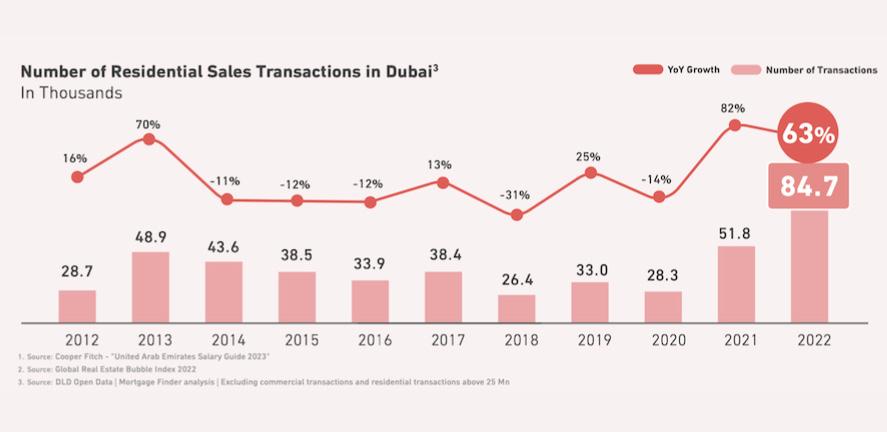




FOREX. INDICES. COMMODITIES. www.gomarkets.com Trading CFDs carries significant risks and is not suitable for everyone. You should ensure you fully understand the risks involved and seek independent advice if necessary. Before you make any decision in relation to a financial product you should obtain and review our Target Market Determination, Product Disclosure Statement, Financial Services Guide and other CFD legal documents. *International Business Magazine Awards 2022
Managing Director
Shashank M
Co-Founder & CEO
Shankar VS
Chief Editor
Madhusmitha V Patil
Editor
Ujal Nair
Assistant Editor
Medhaj Nair, Tamanna Shaikh, Tasleem Majumder
Head of Operations
Kevin Harris
Head of Production Shank Mendez
Head of Research
Laura Edwards
Head of Media Sales
Charles Grey
Media Sales Manager
Chris Young
Advertising contact chris@intlbm.com
Content Managers: Daniel Edwards, Sumana Shankar
Business Development
Leo Morgan, Alisha Taylor, Jane Sanders, James Smith, Jason Brown, Lily Jones, David Johnson, Stella Grace, Sara Watson
Graphic Designer
Chandan R
Video Editor
Nelson Caitan

Account Manager
Agnes Wong
Registered Adddress: Sharjah Media City (Shams), Al Messaned City, Al Bataeh, Sharjah, United Arab Emirates, P.O. Box: 515000

Office Address: Suite No 502, Al Tawhidi 1 Building, Floor 5, Khalid Bin Al Waleed Road, Bur Dubai, Dubai, UAE.
Welcome
.......Note From EDITORIAL
The time is perfect to establish and flourish your business
Wealth Management is the most important aspect of any career. If you are able to sustain yourself financially then it would support your creative acumen and your social life. Trading and asset management are some of the most popular means of wealth generation, apart from conventional corporate careers and services or product-based businesses. While many are jumping onto the bandwagon for developing their investment portfolios, there are few who dare towards the path of entrepreneurship.
A common experience among well-established business personalities suggests that any new venture can be stacked up successfully based on an innovation that serves a popular dilemma. In this edition, you will learn about the latest developments in Photonic Sensing, AI in Mental Healthcare, Quantum Computing, Oncology, precision medicines and more. These pages would also introduce you to some of the latest trends in Digital Advertising, Strategies for Employee Retention and even customer experiences in the banking industry.
Obviously, setting up a business is one story but sustaining it profitably is an entirely different plot. For this, it is highly suggested to read up on our article about the Code of Conduct for Training and the top HR Trends for 2023 Workplace.
Also, we cordially invite you to our Annual Awards Ceremony, scheduled for November 4 at Atlantis The Palm, Dubai. The nominations are open and free for all. Don’t miss this opportunity to garner the top merits for your brand.
Be sure to check out our website at www.intlbm.com

Connect with us on Twitter: @ibmag_magazine, Facebook:@intlbm and Instagram: @intlbm.

Email: info@intlbm.com Phone: +971 55 686 6713




CONTENT Should You Start Trading Currency Pairs in Forex? Technology Advancements and Emerging Opportunities in Photonic Sensing Seven Strategies for sustained employee retention 10 26 36




The Rise of Monoclonal Antibodies and Biosimilars in Oncology Shift Towards Precision Medicine to Improve Healthcare Outcomes How to Make Money with Reseller Hosting 52 58 62 88 How to Create a Code of Conduct Training That Will Help Your Business Thrive
What to consider when investing in your child’s higher education?
An international university education is an open door to opportunity. Between 2000 and 2019, global student mobility tripled, with US, UK, Canada, and Australia hosting almost half of the internationally mobile students.
In 2019, over 5 million students were traveling each year to study overseas. The number represented USD196 billion of total international education expenditure and is forecasted to reach USD 433 billion by the year 2030.

With international education being a significant and daunting financial investment, it’s natural for any parent to ask the question – is it a worthwhile investment?
First, you need to take a step back – look at the bigger picture and plan towards the end goal. Education is not the destination, but rather part of the journey to the life your child wants to lead. This means thinking about how the university they select will shape their lives beyond their years of study.
The right institution isn’t just a matter of academic reputation; it’s also a question of finding the location that suits your child’s lifestyle and goals and also fits within your budget. Whether this is home or abroad, Ivy League or public, here are some of the critical questions for parents and children to consider together to make sure that it is an investment well made.

06 / Education
Is the program flexible or focused on one specialization?
Choosing a program of study should naturally be driven by your child’s skills and interests, but to find the right program in that field, there are other things to consider. Is the program flexible in exploring other disciplines, or does it follow a specialization from the start?
American institutions often don’t require students to select a major until later in their program, while UK universities generally follow the specialized curriculum from the beginning. Consider whether flexibility or focus is the right option for your child.
Does the teaching style suit me?
Is the teaching style experiential, with practical and lab-based lessons, or is it more traditional and classroom-oriented? For example, American universities offer co-op programs
that combine classroom instruction with on-the-job training, while the UK curriculum focuses heavily on academic rigor. Consider
Will it prepare me for a good job?

Is the program, and most importantly, its curriculum, relevant to the emerging jobs market? Degree programs of the same name can vary in content and delivery. Consider if

Can I work wherever I want?
Qualifications linked to licensed professional practice, such as medicine and accounting, need to be transferable so that they are accepted by the relevant authorities in the
which will suit your child and best prepare them for their future.
there is workplace demand for the knowledge and skills your child will develop to have good job prospects when they graduate.
countries of practice, as well as where they are awarded. Consider whether the program is recognized by the relevant bodies and will enable your child to work globally.
Education / 07
Can we afford the fees and expenses?
Do you have a financial plan in place? Higher education is a significant investment, and the returns are rarely immediate. If your child plans to go overseas, living expenses must also be considered. The tuition, accommodation and general subsistence cost vary significantly
Am I prepared to leave home?
Is your child prepared to live independently?
It’s a big leap from graduating high school to moving away from home, potentially multiple flights away from family and friends. Consider whether your child is practically and emotionally prepared for independent living.
Will I meet the right people?

Can the institution expose your child to networks that will help build their career? A university education isn’t just a qualification; it’s an experience that will shape a child’s future. Attending university overseas will expose your
Where do I want to be in the future?
Are you looking for a higher education destination that could facilitate immigration?
University can provide the launch pad if your child’s long-term life goals involve living and working abroad. Consider the legal requirements and lifestyle aspects of the countries you’re exploring, as well as the longterm employment prospects that will come with the degree qualification and academic reputation of the institution chosen.
across countries and cities. Consider what you can commit financially and whether scholarships are a realistic option, as this may have a bearing on which institutions and locations you should explore.
If they aspire for an international education but don’t want to leave home straight away, consider the other options available such as branch campuses with transfer or study abroad options after one or two years.
child to international networks that broaden their professional horizons. Consider whether the location and institution are a good fit to develop lifelong connections that can boost career development.
With so much at stake, parents often feel immense pressure to help their child make such a life-defining decision. Trying to balance the logistical challenges and financial responsibilities with the need to do what’s best for their child’s education, well-being, and future prospects means that the university admissions process can be a stressful experience for parents as well as students. If you start early with these key questions, you’ll be well prepared for the process.
08 / Education
Blog by Varun Jain

Varun Jain is Founder and CEO of UniHawk, a leading university admissions counselling and test preparation institute in the GCC, specialising in guidance for overseas study.

Education / 09
Should You Start Trading Currency Pairs in Forex?
Have you come across information about trading currency pairs in forex and wondered whether it is the right path for you? Maybe you even know people who are already trading in the forex market, and they have encouraged you to trade but you aren’t sure if you should. Well, by answering some questions, you can gain some much-need clarity regarding whether or not you should start trading currency pairs or if you should try a different strategy to achieve your goals when it comes to your personal finances. Here are some questions to consider.
Are You Willing to Put the Work in to Learn About Forex?
One of the many things you need to consider before becoming a forex trader is whether or not you have the time to learn about this trading strategy. There is a lot to think about, from the forex broker that you will sign up with to the trading platform you will use. For instance, will you search for an online broker that lets you download MetaTrader 4, or would you prefer using a different platform?
In addition to thinking about your online broker and trading platform, also consider the fact that you need to learn as much as you can about currencies in order to work with them wisely. There are major, minor, and exotic currency pairs in the forex market, so it’s important to discover what they are, what influences their values, and more. That way, you can decide which pairs you want to buy and sell once you start trading.

10 / Forex


Forex / 11
Do You Have a Decent Budget for Trading Currency Pairs?

Another thing to consider is your trading budget. Although you don’t really need to have a huge budget to start trading currency pairs, you want to be comfortable with the amount that you plan on putting into the market. If you do not have a lot of money set aside in savings, you might not be totally ready to put some of it into trading currency pairs. On the other hand, if you have a good amount of money set aside, you might be able to comfortably take
some of those funds and put them into the forex market to hopefully make them grow.
Coming up with a budget is key because it can help you stay within your limits as a forex trader. It is easy to feel tempted to trade with a lot of money, as you might assume that doing so means you will get bigger and better returns, but you need to bear in mind the risk that you take on.
12 / Forex
Are You Comfortable with Taking on Risk?
Speaking of risk, every trade that you make in the forex market will come with some level of risk, and you can use that as a way to determine if you want to go through with a trade or not. Some trades are riskier than others, and you might not be comfortable with them. That’s totally fine, as you can stick with lower risk trades.
Before you start trading currency pairs, work on determining how much risk you are willing to take on. That way, you can reduce the odds of
losing too much of your hard-earned money. The good news is that there are tools you can use to calculate risk, and there are methods that you can use to manage risk, so you don’t have to blindly guess.
Overall, forex can be thrilling and can help you grow your money, but because there’s a lot to learn and the trades do come with risk, it’s important to carefully evaluate this strategy to figure out if it’s right for you.

Forex / 13
Khalid Talukder of DKK Partners

International Business Magazine recently announced DKK Partners as the ‘Leading Provider of Foreign Exchange (FX) Services, UK 2023’. DKK has garnered a reputation for being one of the most trusted FX liquidity market maker. It provides 24-hour global access with a specialisation on frontier markets.
Founded by Khalid Talukder and Dominic Duru in 2020, DKK Partners holds the ambition to unveil a whole new crop of high-potential enterprises led by prolific entrepreneurs. Co-founder Khalid Talukder gave us exclusive insight into the key investment pockets, value chains, global investor scenario and the expectations to be met for the startups and the MSMEs.

‘DKK’s ultimate goal is to truly provide access to first-class financial services in emerging markets’
14 / Forex
According to you, what are the current trends, top segments, key investment pockets, value chains and competitive scenarios in some of the emerging economies around the world?
Co-founder

Dominic Duru and I have backgrounds in emerging markets and have lived the struggles these regions face in terms of access to financial services, technology and support. These barriers have long held back the progress of developing nations and frankly this has gone on for too long. That’s a driving force behind DKK, and I pride myself on ensuring we have regional experts in every country that we operate in - people who have also lived these barriers and have the same determination to unlock the gateways to emerging markets.
DKK’s ultimate goal is to truly provide access to first-class financial services in emerging markets to empower local economies and business to thrive. There is so much potential in regions such as Africa and the Middle East and with proper support, technological infrastructure and access, these economies can deliver global business growth.
Scaling globally also presents obvious geographical challenges, communicating with on the ground teams, getting licencing, and building networks sometimes from scratch.
But it’s all a part of the journey. We have excellent teams growing in countries such as Senegal, Cameroon & Ghana to mention a few who share a passion for the development of financial services in emerging markets and there’s no slowing down here, we want to continue expanding into new regions.
I also believe that blockchain will advance significantly off the back of digital currencies from economies, and it is only a matter of time before digital currency becomes more common in the UK.

Forex / 15
The following are the excerpts from the exclusive interaction with the co-founder
How are you attracting the younger generation of tech-savvy global investors?


Entrepreneurship promotes innovation and action above all else, creating a drive to solve problems and succeed because you have to.
DKK was set up to be a disruptive fintech company focused on emerging markets that empowered our customers with a combination of the latest technology and market expertise. We also wanted to create a new kind of fintech business that leads the way on CSR, diversity and forward-thinking. The first three years have been an incredible journey, but we have so much more to do, and this is just the beginning.
Our platform offers an alternative way to access G10 and emerging market currencies without relying on central banks. Our expanding range of products includes FX emerging market liquidity, FX hedging & risk management, and various channels for cross-border payments. We have bootstrapped our company with zero debt and
have processed $100M+ in FX transactions for FY 2022.
To maintain stability in their currencies, manage payments, and build confidence in economic crises, central banks in emerging and frontier markets need to hold significant reserves of foreign exchange. The limited availability of G10 currencies, particularly the US dollar, can impede access to global financial markets for banks and businesses in these regions. Thin market liquidity leads to volatile prices, high transaction fees, and slow transaction times.
Our solution: Stable coin (USDT/USDC), which is a ‘pivot’ through secure digital wallets (vaults) to provide an alternative method for transferring value. Having in country nostros allows us to effectively trade both sides of the transaction and move value between fiat currencies and non-fiat alternatives in real time.
16 / Forex
Do you provide any special features for the startups and SMEs?
We support start-ups, non-bank financial institutions (NBFI), local banks and SMEs to launch their business offerings internationally with FX, payment and liquidity management solutions, backed by DKK’s team of financial experts built with deep in-region knowledge and years of industry experience.
DKK also provides a Virtual IBAN (International Bank Account Number) for payments businesses to enable multi-currency, multi jurisdictional accounts. Our solution gives businesses in the payments space a crucial competitive edge through offering international business bank accounts, unlocking access to new territories and currencies to

promote international trade and expansion working closely with our partners. Our customer’s customers can make and receive payments to unique addressable IBAN’s in multiple jurisdictional formals via local and cross border payment rails. DKK is truly a champion of international collaboration and overseas growth.
We strive to solve the issues that businesses face with barriers to international payments, holding them back from growth in emerging markets through a combination of innovative technologies and financial expertise. We want businesses to have access to the tools they need to thrive in overseas markets.
Give us a short description of some of the salient services of DKK Partners

DKK Partners launched in 2020 and offers unrivalled liquidity across emerging and frontier market currencies, offering customers access to real-time pricing, execution and settlement. We act as a one-stop entry point for day-to-day exposures in foreign exchange, balances, and risk, monitoring, market fluctuations and live market news feeds. The real-time aspect provides businesses with unique control in the market which makes our proposition unique.
Being an entrepreneur in DKK Partners has also meant being empowered with the resources to tackle social issues. We founded DKK with a clear mission statement to deliver first class services to our clients, but that’s only part of who we are, and this initiative is the first of many that will allow DKK to play a crucial role
in supporting important causes and making a difference where it really counts.
Last year, for example, we supported a campaign with Shelter, going on the frontline in the fight against homelessness. Shelter is an incredible organisation with dedicated volunteers, and the work they do protects the wellbeing of so many people.
Forex / 17
Kindly share a success story of one of the clients of DKK Partners

Due to our country expansion through the West Africa region over the last couple of years, and leveraging USDT and USDC, we have been able to effectively clear emerging market currencies into G3.
We have been particularly focused on major importers of FMCG products into west African markets sourced internationally. Everyone is aware of the length of time it takes s ettle international invoices through ‘clunky’ corre-
sponding legacy banking rails which affects working capital for these firms & profitability.

By leveraging DKK’s deep liquidity pools and our proprietary ‘clearing’ rails by partnering with strategic financial institutions we can achieve same day or at worst next day settlement where typically this would take anything between 5-7 days.

18 / Forex
What are the future prospects and ambitions of DKK Partners?


What are the upcoming events that your clients should look forward to?
One of my proudest achievements of recent times was being inducted to become a Freeman of The Worshipful Company of Entrepreneurs. It was a special occasion and vindicated all the work that’s gone into building DKK Partners over the past few years. It’s also been a great achievement to be invited to speak at a number of industry summits in the halls of Parliament, debating key topics such as regulation and the future of AI alongside esteemed industry leaders and policy makers as we carve out a roadmap for the intersection of financial services and technology over the coming years.
We’ve rapidly increased our staff numbers over the past few years, bringing in specialist teams to serve on the ground markets in West Africa,
Central Africa, Dubai, as well as the UK, with plans for continued expansion in a further 3-4 countries in the second half of 2023. Our motto for the has been ‘the year of scale’, aiming to expand our reach globally to new emerging and frontier territories and hiring more on the ground staff with deep local knowledge of the market.
We have grown year on year by an average of 150 per cent in revenue and through further expansion in 2023, we aim to continue that rate while maintaining the quality of our products and services through the hires of industry veterans as well as up and coming entrepreneurs to continue building our excellent team and delivering access to firstclass FX solutions.
Forex / 19
Fed Tread to dread or Break Bread?


20 / Investment
Investing cautiously and not against in ways that might run contrary to the US central bank policy gave rise to the adage “Don’t Fight The Fed”! Despite that, a section of investors seems to wage this fight unequivocally. Although the Fed offered explicit guidance that continued monetary tightening may be needed to subdue inflation, investors seem to have ignored how such policy action could further weigh on the economy and corporate profits. Instead, they have sent US stocks rallying on the apparent conviction that inflation will quickly fall to the Fed’s target of 2% and that the central bank will soon turn to cut interest rates.
The rebound has sent valuations to extreme levels again, with the SPX now priced at 18.5 times forward earnings. But is this confidence justified? Is inflation truly controlled and will the US economy come out of this tightening cycle with only a scratch? Morgan Stanley’s Global Investment Committee believes investors should recognize that this is a period of profound uncertainty. Three developments amplify my concerns:

Investment / 21
Opaque Economic Outlook

Consumers are spending down their savings and running up credit card balances at a time when corporate layoffs have begun in some sectors. Even as service sectors remain strong, manufacturing new-order rates continue to decline, suggesting weaker demand for goods. Some investors expect the economic recovery in China to rescue the US economy from a steeper decline, but if US growth rebounds, that could put upward pressure back on prices and prompt the Fed to keep rates higher for longer, in turn weighing on asset prices.
Perturbed Corporate Profits
The consensus estimate for SPX company earnings this year is higher than likely at $224 per share. This relatively sanguine forecast is based on 2020-2022 trends, which seems to ignore the fact that economic growth has been extremely distorted in those recent years: For the past 10 quarters, US nominal GDP has run between 9% and 14%, versus the long-run trend of 4-5%, and SPX operating margins have averaged 14.5-16.5%, versus the 25-year average of 12.5%. The tendency for performance to revert to a long-term average could bring about a negative year-over-year change in earnings growth, known as a “profits recession.”
22 / Investment
Labor Market Positivity
Despite gathering headlines on layoffs, the US labor market has remained strong overall, as measured by large numbers of new job openings and a recent 53-year low in the unemployment rate. A resilient jobs market could help the economy achieve a “soft landing” if robust real wages support consumption. The conundrum, however, is that strong wages and spending would likely add to inflationary pressures and thus provide little rationale or incentive for the Fed to cut rates.
Inflation has likely peaked and the bulk of Fed tightening is probably behind us. But remember that policy operates with a lag, and uncertainty around the economy, earnings, and jobs matters. It is a confusing time that demands hedging one’s portfolio positioning. To that end, investors should focus on income generation while this cyclical period of maximum uncertainty plays out. Lean into short to intermediateterm Treasuries, municipals, investmentgrade corporate bonds, and dividendgrowth stocks.

Investment / 23
The Fed hiked interest rates for the eighth time earlier this month and warned of ongoing increases needed to bring down inflation. That same week, the jobs report for January showed the US unemployment rate fell to a 53-year low. This is powering wage gains and, in turn, boosting consumer spending, which might explain why consumer prices in the US rose more than expected last month. The Fed has two responsibilities: keep employment full and inflation around a stable 2%. But the central bank can only do half a victory lap because January’s jobs and inflation reports painted two very different pictures. The first was an absolute blowout: 517,000 jobs added (more than double the month before and shattering economists’ estimates of 187,000), a 53-year low in the unemployment rate, and strong wage growth that was higher than expected. But while promising for workers, the jobs report was probably too hot for the Fed’s liking. The central bank has been aggressively increasing interest rates in an effort to dampen consumer demand and bring down inflation. Problem is, inflation
isn’t coming down as fast as hoped. Data this week showed consumer prices increased by 6.4% in January compared to the same time last year. That was only slightly lower than the 6.5% pace recorded the month before, and economists had expected a bigger deceleration to 6.2%. On a month-on-month basis, consumer prices climbed by 0.5% in January –the most in three months and a steep acceleration from December’s 0.1%.

One of the reasons why inflation isn’t falling fast enough goes back to the redhot labor market, which has bolstered wages and allowed many Americans to keep on spending – even as borrowing costs rise and inflation stays elevated. In fact, separate data this week showed retail sales increased 3% last month from the one before – their biggest gain in nearly two years and easily topping forecasts of 1.9%. Those numbers aren’t adjusted for inflation, meaning that consumer spending outpaced the 0.5% increase in consumer prices for the month by two and a half percentage points.
• Inflation is likely to stay high for a while. On top of a blistering labor market, China’s reopening could fuel inflation in the US and the world over. Bloomberg Economics, for one, reckons China’s economic growth will almost double this year to 5.8%, and that could lift global inflation by close to a full percentage point toward the end of 2023. But even putting the labor market and China aside, history tells us that spikes in inflation take a long time to disappear. A study by Research Affiliates looked at surges in 14 developed countries over the past 50 years: when inflation crosses
24 / Investment
above 8% (the level reached by most of the developed world last year), falling back to 3% usually takes six to 20 years, with a median of over ten years.
• Interest rates will probably climb to a higher peak than previously thought. But that doesn’t guarantee a repeat tumble for stocks. That’s because the marginal impact on stock valuations of a one percentage point increase in rates is far less when you start at today’s levels of around 5% in the US, versus when you start from zero. Put differently, rates rising from 0% to 1% hits stock valuations way harder than rates going from 5% to 6%.
• The US securities regulator proposed new rules this week that would force investment advisors to secure clients’ crypto assets with qualified custodians. The idea is to build better safeguards around investors’ assets and comes after the collapse of several high-profile crypto companies last year, which revealed that customer funds were not as safe as had been advertised.

Hence the title of my article! Have a great Feb month making and taking the right investment decisions or at least try!
Risk warning
As with all investing, your capital is at risk. The value of your portfolio can go down as well as up and you may get back less than you invest. Past performance and the contents of this outlook is not reliable indicator of future performance. This article/print is protected through international copyright & print laws and may not be reproduced, distributed or copied without exclusive permission from the writer.
Hence the title of my article! Have a great Feb month making and taking the right investment decisions or at least try!
- Blog By Geoffrey Muns
Geoffrey Muns is an Independent Financial Advisor and Planner certified from the UK, US and UAE based out of Dubai for the past 20 years. He also works in the PE/VC space and is a seasoned investment banker having worked with international banks and investment firms in the region.
Investment / 25
Technology Advancements and Emerging Opportunities in Photonic Sensing

Photonic sensing is a technology that uses light to detect and measure environmental changes or identify a specific target. It involves the use of optical systems, such as lasers, fibers, detectors, and photodiodes, to detect changes in light intensity, wavelength, phase, polarization, or time delay caused by changes in the environment or the presence of a target. Advancements in the optics and photonics domain aim to replace conventional technologies that provide advanced functionality in sensing and monitoring applications. The integration of photonic sensors with other technologies, such as electronics (LiDAR), microfluidics, and
nanotechnologies, leads to the development of hybrid devices and topologies that can highly impact different applications.

Photonic sensors can be used in a variety of applications, such as chemical and biological sensing, temperature and pressure sensing, structural health monitoring, environmental monitoring, and security and surveillance. They offer several advantages over traditional sensors, such as high sensitivity, fast response time, immunity to electromagnetic interference, and the ability to monitor remote or inaccessible locations.

26 / Technology
Organizations across the globe aim to expand the functionalities of photonic sensors from various aspects and diversify the potential capabilities in biological and chemical sensing modalities. Some noteworthy R&D areas include thermal stability analysis, enhancing sensitivity levels, low detection limit, high tunability, newer materials, flexibility in terms of structure, and self-assembly. It is interesting to note that researchers are also exploring stretchable and self-adhesive photonic sensors that are biocompatible for underwater motion detection applications. Photonic crystal sensors for wearables and terahertz imaging are other areas garnering a lot of attention from the research community.
Some interesting sensors include fiber optic sensors, surface plasmon resonance sensors, photonic crystal sensors, and microresonator sensors. Such sensors are becoming increasingly important in many industries, including
healthcare, telecommunications, energy, and aerospace. They are expected to play a key role in the development of smart cities and in enabling the internet of things (IoT) concept. Some of the prominent companies working on photonic sensors are ON Semiconductor, OMRON Corporation, Banner Engineering Corp., Pepperl+Fuchs GmbH, Hamamatsu Photonics K.K., Applied Nanotools and Synaptec Ltd. Prime Photonics, LC, Banpil Photonics Inc., NP Photonics Inc., One Silicon Chip Photonics Inc., Bayspec Inc., FISO Technologies Inc., A2 Photonic Sensors SAS, Ibsen Photonics A/S, Smart Fibres Limited, BBN International Limited, and Baumer Electric AG.
Startups such as Optics11, Optitune, and Luminate are developing innovative photonic sensing technologies, including fiber optic sensors, plasmonic biosensors, and metasurface-based sensors

Developments in Photonics Driving R&D Innovations in Sensors
Nanophotonics: The development of nanophotonic structures enabled the creation of highly sensitive and selective sensors that can detect small changes in the environment or a target.
Plasmonics: Plasmonic sensors use the interaction between light and surface plasmons, which are oscillations of free electrons in metals, to enhance the sensitivity of the sensor. This has led to the development of highly sensitive biosensors for medical and environmental applications. Plasmonic biosensors detect the presence of biological molecules. These sensors offer high sensitivity and
selectivity and have potential applications in medical diagnostics, environmental monitoring, and food safety.
Optical fiber technology: The use of optical fibers for sensing applications has expanded greatly over the years. Newer configurations, such as hollow core fibers and microstructured fibers, are explored to develop distributed sensing, where measurements are made along the entire length of the fiber. Distributed fiber optic sensors, such as distributed temperature sensors (DTS) and distributed acoustic sensors (DAS), have been developed for applications such as structural health monitoring, oil and gas pipeline monitoring,
Technology / 27
and perimeter security. These sensors can measure temperature or acoustic vibrations along the entire length of a fiber optic cable, allowing for real-time monitoring of large areas.
Chip-scale sensors: Advances in microfabrication technology have led to the development of photonic sensors that are small enough to be integrated onto a single chip. Chip-scale photonic sensors, also known as photonic integrated circuits (PICs), are becoming increasingly common. These sensors are small, lightweight, and can be integrated with other electronic components
on a single chip. These chip-scale sensors have applications in biomedical sensing, telecommunications, and environmental monitoring.

Metasurface-based sensors: Metasurfaces are artificial structures that can manipulate the properties of light. Metasurface-based sensors can be designed to detect changes in the environment or a target, including changes in temperature, pressure, or refractive index. These sensors have potential applications in biomedical sensing, environmental monitoring, and chemical sensing.
The adoption of photonic sensing technologies presents numerous opportunities for businesses and governments to improve their operations and gain a competitive edge. By leveraging the benefits of high accuracy, sensitivity, and real-time monitoring, organizations can enhance their decision-making processes, reduce costs, and increase efficiency. Manufacturers must invest in research and development of photonic sensing technology and explore new applications to remain competitive.
Various business models such as device sales, service, subscription, and licensing depend on the specific market, target customers, and competitive landscape. It is important for companies to understand customers’ needs and preferences and develop innovative products through strategic partnerships to succeed in the photonic sensing industry. Furthermore, collaborations between academia, industry, and government can help accelerate the pace of innovation and drive the commercialization of photonic sensing solutions.
Authored By: Varun Babu, Industry Analyst, and Kasthuri Jagadeesan, Director, TechVision, Frost & Sullivan

28 / Technology
Conclusion


Technology / 29
Incorporation of Artificial Intelligence into Mental Healthcare


Mental healthcare is a severe concern today. People are raising awareness everywhere to save mental peace, fight stress, anxiety, and many more. Day by day, the concern for mental healthcare is expanding and it has become really important for everyone to consider their mental health.
Our fast-paced world has made everyone’s life stressful. People hardly find time to think about their health, let alone, mental health. Moreover, there still exists some places where natives think that discussing mental health is a taboo and even shun the very existence of the term ‘mental health’, turning it as part of ‘physical health’. Therefore, in this partially aware world, when people ponder to fight their mental illness and end up getting incomplete treatment or unsure illness, their belief towards a cure declines. Therefore, it becomes very essential to treat or diagnose the patients with right procedures.
30 / Healthcare



Healthcare / 31
Reports and Statistics
An individual is said to be suffering through some kind of mental health if he/ she has no positive emotion, have low mood, and has a variety of abnormal behavioral, emotional, physical, and cognitive issues. Globally, mental health diseases are on the rise that affects 1 in every 7 individuals. At least 10% of the population is impacted, and suicide is the fourth greatest cause of death for people between the ages of 15 and 29. Nearly 15% of teenagers experience a mental health disorder. Depression is caused by several variables, including genes, stress, and brain chemistry. According to some research, the market for mental health services worldwide, which was valued at USD383.31 billion in 2020, is antici-
pated to expand to USD537.97 billion by 2030, at a CAGR of 3.5%. World Health Organization says that in 2020 , depression affected more than 264 million individuals worldwide, regardless of age.
From 2022 to 2027, the market for artificial intelligence in mental health is projected to expand at a CAGR of 39.1%. Following an analysis of 28 studies on artificial intelligence and mental health, researchers from IBM and the University of California came to the conclusion that the choice of AI techniques and quality of data training allow algorithms to approximately identify a variety of mental disorders with a 63-92% accuracy.


32 / Healthcare
AI’s Essentialities

Artificial Intelligence or AI has been leveraged for many years. Almost in every field now, there’s a role of AI. It is playing a significant role in backing up nearly every effort of human life. In the medical field, AI is already playing a big role in diagnosing people’s diseases. Whether for automating the tasks or analyzing patient data or using tools such as AI assisted pathology tools to assist diagnosis, AI has played its role very well. Now, if we see the functions of AI in curing mental health issues, there are innumerable roles that AI can play in solving the issues in its nascent stage. Mental health field has initiated AI into it in order to receive better and personalized care. AI can shorten waiting times and allows quick availability. While accessing treatment there could arise several barriers which AI can remove easily. Moreover, it can boost up the efficiency level in medical or therapy sessions. Further, AI has the power to precise the diagnosis and treatments of the patients. The training of therapists and the quality control of care are both made easier by the technology. With the aid of this technology, medical personnel could sieve through patient records to find information about their behavior, pattern, history, or any other useful information that could aid in decision-making. In mental healthcare, artificial intelligence could lower expenses and increase accessibility. A new study demonstrated that artificial intelligence may detect anxiety symptoms with over 92% accuracy. Technology continues to offer approaches to improve mental health. AI can drastically lessen symptoms before they worsen if used properly.

Healthcare / 33
How is AI transforming mental healthcare solutions?

Let us have a few detailed look at how AI can revolutionize patient’s mental issues:
• Provide precise diagnosis
AI has the power to combat misdiagnosis or re-define early diagnosis. It has proved to provide the right and precised diagnosis at shorter period of time, thus increasing therapy effectiveness. AI research can assist doctors personalize treatment by grouping patient diagnoses into several ailment subgroups. Leveraging AI to analyze enormous amounts of large data and identifying trends can help professionals make advancements earlier than they alone could do. For instance, AI can identify patterns in complex data like family history, successful prior therapies, patient
• Assigning right therapist
According to researchers, insights from data can be used to better connect potential patients with right therapists and determine which kind of therapy would be most effective for a given person. Furthermore, after being matched with a therapist, it is important to keep a track of the patients’ advancement. AI can assist in determining when a treatment
behavior, and other aspects to deliver a more accurate diagnosis and assist both the patient and doctor in getting the best result. Recent technological developments demonstrate that AI can identify depression twice as accurately as humans. AI extracts data from a sample and then assesses several metrics contained within the sample. For instance, the technology can identify depressive symptoms by examining vocal biomarker information from an audio sample, such as pitch or speech rhythm.
modification is necessary or if it’s time for a new therapist. A UK and US based software company, Lyssn, analyses utterances between therapists and clients using an algorithm to determine how much time is spent during a session on constructive therapy vs. idle conversation.
• Comprehending the language pattern of the patients
In therapy sessions of the mental health care, patients are often interacted by the doctors or consultants. It is done to comprehend patient’s behavior, issues and other things. This is also called as psychotherapy or talk therapy. In order to make the session smooth and easy, medical healthcare professionals use AI to analyze a method called NLP or Natural-Language Processing. This procedure uses machine learning and identifies the
precise words that a therapist and patient use to communicate with one another and treat a disorder at the greatest quality level. A UK based company, ieso, tested the procedure showcasing the potential of AI-based online therapy, with a 1/3 greater recovery rate than face-to-face therapy. Additionally, their services shorten waiting lists by 30% and expedite patient access to care.
34 / Healthcare
AI applications


There are several AI applications too that process human behavior more accurately. Some of them are:
1. Woebot, that claims to be an emotionally intelligent AI chatbot that provides a space for individuals to express their thoughts and emotions through therapeutic dialogues while also keeping track of their moods.
2. Youper, a therapy app, averse to decrease the level of anxiety and depression in a patient within the first two weeks of treatment.
3. Wysa is an artificial intelligence (AI)-based “emotionally intelligent” bot that offers a variety of tools and techniques, including evidence-based CBT, Dialectical Behavior Therapy (DBT), guided meditation, breathing, and yoga, to help users regulate their emotions and ideas.
Concluding Thoughts:
Today 1 in 7 people, globally, experience mental health issues. Hence expanding access to resources and developing new forms of therapy are essential to preserving both mental and physical health. Incorporating AI into mental healthcare solution could be a game changer. It will be feasible to assist mental health professionals in redefining
mental diseases more objectively than done now as AI approaches are developed and enhanced. However, AI is a work in progress. It is unlikely that it will ever completely replace conventional therapy in the foreseeable future, but still the potential of artificial intelligence for mental healthcare is considerable.
- A blog by Tasleem Majumder
Healthcare / 35
Seven Strategies for sustained employee retention



36 / Corporate
In today’s competitive job market, retaining employees has become a challenge for organizations. While factors such as work-life balance and compensation are often discussed as key drivers of employee retention, recent research has identified other important factors that play a crucial role in keeping employees engaged and committed to their organizations.

Autonomy and Empowerment
Employees who are given autonomy and empowerment are more likely to feel engaged and committed to their work. When employees have a sense of control over their work and are trusted to make decisions, they are more
Opportunities for Growth and Development
Employees who are given opportunities for growth and development are more likely to feel engaged and committed to their work. When employees are provided with training and development programs, they are able to acquire new skills and knowledge, which can
likely to take ownership of their work and feel a sense of pride in their accomplishments. This sense of ownership and pride can lead to higher levels of job satisfaction and lower turnover rates.
lead to higher levels of job satisfaction and a greater sense of fulfillment. Additionally, when employees are given the opportunity to advance within an organization, they are more likely to feel committed to the organization and less likely to leave.

Genuine Constructive Feedback for True Development
Genuine constructive feedback that leads to true development is another crucial factor that can help in retaining the workforce. Employees want to know how they are performing and what they can do to improve their skills and knowledge. Regular feedback can help them to grow in their roles and feel valued and appreciated.
According to a survey by TinyPulse, employees who receive regular feedback are 3.5 times more likely to be engaged in their work compared to those who don’t. Furthermore, employees who receive regular feedback have a turnover rate that is 14.9% lower compared to those who don’t.
Corporate / 37
However, feedback needs to be constructive and genuine to be effective. It should focus on the employee’s strengths and areas for improvement in a positive way, rather than just pointing out mistakes or weaknesses. Employees should feel that their managers care about their growth and development and are willing to invest in them.
Recognition and Appreciation
Employees who feel recognized and appreciated for their contributions are more likely to feel engaged and committed to their work. When employees receive positive feedback and recognition for their work, they
Purpose and Meaning
Employees who find purpose and meaning in their work are more likely to feel engaged and committed to their organizations. When employees are able to connect their work to a larger mission or purpose, they are more
Positive Leadership
Leaders who demonstrate positive leadership behaviours are more likely to have engaged and committed employees. When leaders actually walk the walk, and are supportive, empowering, and provide opportunities for growth and development, employees are more likely to feel valued and invested in their work. Additionally, positive leadership can help to foster a positive workplace culture, which can lead to higher levels of job satisfaction and lower turnover rates.
In addition, feedback should be given in a timely manner, and employees should have the opportunity to discuss their progress and receive guidance on how to improve. This can help in fostering a culture of continuous learning and development, where employees feel that they are growing and developing in their roles.
are more likely to feel valued and motivated to continue performing at a high level. This recognition can come in many forms, from verbal praise to bonuses or promotions.
likely to feel a sense of fulfillment and pride in their work. This can lead to higher levels of job satisfaction and a greater sense of loyalty to the organization.
According to a study by Gallup, employees who strongly agree that their manager focuses on their strengths or positive characteristics are 67% more likely to be engaged in their work compared to those who don’t. Furthermore, organizations with positive leaders are more likely to have engaged employees and higher levels of productivity and profitability.

38 / Corporate
Work Relationships
Another important factor that contributes to employee retention is the quality of relationships within the workplace. Employees who have positive relationships with their colleagues and managers are more likely to feel valued and engaged in their work. According to a study by the Society for Human Resource Management (SHRM), 55% of employees rated relationships with their co-workers as very important to job satisfaction, and 44% rated relationships with their immediate supervisor

as very important. Another study by Edelman Trust Barometer found that 75% of employees view their employer’s trustworthiness as important for retention.
As employers around the world deal with the aftermath of disruptive workplace phenomena, a renewed focus on the practical steps to promote workforce retention will bring benefits to employees and employees alike.




 - Blog By Hanan Nagi
- Blog By Hanan Nagi
Corporate / 39
Quantum Computing: The Future


40 / Technology
The world is making a breakthrough in every field, technology being no exception. What’s fascinating is how a particular technology could suddenly soar to new heights and play a part in shaping the future. When Einstein discovered relativity, he was clueless about it becoming an important concept but look at us now, opening up this infinite box of opportunities known as quantum computing.
What is Quantum Computing?

When professionals run into a problem they turn towards supercomputers which aren’t that super as sometimes the scale and complexity of the problems are too much for them to handle. This is where quantum computers could come to the rescue, they harness the law of quantum mechanics to solve problems that are too complicated for traditional computing technology. The astonishing power of a quantum computer is due to the colossal resemblance of having three elemental properties of quantum mechanics: quantum superposition, entanglement and interference.
To understand precisely, in classical computers there is something known as bits which store data, and it only takes the value of either 1 or 0 at any given time, whereas a qubit can be found in a superposition of both states 0 and 1 until a measurement is obtained.
Quantum Superposition
A quantum particle is used as a bit, also known as a qubit. It could be an electron, photon, or any particle, but outer electrons in phosphorus atoms are frequently used. When the spin is up it’s 1 and when the spin is down it’s 0. The spin
Let’s dive right into this beautiful concept which will make a difference in the future.

It is often considered a complicated technology to understand but, for people curious to learn, let’s make it elementary and begin with a holistic approach. Starting right from the How, What and Why questions.
can be controlled with an electromagnetic field. The spin of electrons can be up, or down, and while we’re not observing, they can be up and down at the same time. This is known as quantum superposition.
Technology / 41
Quantum Entanglement

In quantum mechanics, we use the property of entanglement. Two particles can be linked so that no matter the distance, one particle always gives the same result as its other half. This entanglement will manifest itself in the
Quantum Interference
Quantum interference is an outgrowth of superposition. It is a fundamental concept in quantum mechanics that describes the behaviour of quantum systems when they interact with each other. In quantum mechanics, particles such as electrons and photons can behave as both waves and particles and when they interact with other particles or waves, they can either interfere constructively
How do they work?
Quantum computers tend to deal with instructions in a different way when compared to classical computers. Traditional computers use binary bits whereas quantum computers convey information through qubits. The qubits capability of being in superposition is the core of quantum computing, as it displays a huge analytical power.
They harness an array of algorithms to perform various assessments and inferences. User inputs are then accustomed by the computer to create a multifaceted space where patterns and individual data points are stored. The physical construction of a quantum computer comprises three parts. The first one is a classical computer with a framework that executes programming by delivering commands to qubits. The next part is the transfer of signals from the computer
outcomes of measurements on these qubits. When measured, these qubits will always capitulate 0 or 1 at random, but no matter how distant they are from each other, they will consistently give the same result.
or destructively. Constructive interference is where the crest of one wave meets the crest of another wave having the same frequency resulting in an amplitude which is the sum of the two individual amplitudes. On the other hand, destructive interference is when a range of one wave meets a trough of another wave, then the amplitude is equal to the difference in the individual amplitudes.
to qubits. Lastly, a repository is required for storing these qubits. This repository must maintain the qubits in their constant form. This demands specific requirements that range from needing to be near zero degrees or the housing of a vacuum chamber.
Qubits require huge sustenance as even a basic instruction can cause disturbance and result in a loss of a quantum state. Not only small vibrations but slight temperature shifts will also make the qubits decohere.
That’s why quantum computers are kept isolated, and the ones that run on superconducting circuits — the most salient method, preferred by Google and IBM — have to be kept at near-absolute zero (a cool -460 degrees Fahrenheit).
42
/ Technology
Some applications of Quantum Computing
1. AI and Machine Learning
Quantum computing has the potential to revolutionize AI and machine learning by providing exponential speedup for certain types of calculations especially related to optimization, which involves finding the best solution from a large set of possible solutions. Quantum computing can provide exponential speedup for certain types of optimization

2. Computational Chemistry
It is one of the most promising fields because of the ability of quantum computers to exist in both values i.e. 1 and 0, concurrently. This could provide a great opportunity for the machine to map molecules elaborately which could serve the purpose of pharmaceutical research. Along
3. Financial Services
Application of quantum technology in this field will prove to be rewarding as it can accomplish intricate computation and give a better solution in lesser development time. Algorithmic trading is another possibility where
4. Logistics
Quantum computers would help to optimise transportation and routing systems by helping them to calculate the most efficient routes that would save fuel consumption and travel time. Secondly, it can help companies to maintain their inventory by predicting demand and
problems, which can enable us to find better solutions faster. Secondly, quantum machine learning algorithms can be used to classify data more quickly than classical algorithms. Additionally, quantum computing can be used to speed up the training of machine learning models, which can help reduce the time required to develop new AI applications.
with that, it can also improve the nitrogenfixation process for creating ammoniabased fertilizer; creating a room-temperature superconductor; removing carbon dioxide for a better climate; and creating solid-state batteries.
complex algorithms are used to automatically trigger share dealings by evaluating the market variables, which is beneficial, especially for high-volume transactions.
optimizing stocking levels. This would reduce stockouts and waste. It would also aid in the supply chain by predicting and mitigating risks, improving visibility, and optimizing logistics processes. Thus, improving freight transportation and last-mile deliveries.
Technology / 43
Weather Forecasting & Climate Change
Quantum computers can gather huge amounts of data, in a stipulated period. This could lead to enhanced weather system modelling allowing scientists to predict the changing weather patterns in no time and with excellent accuracy — something which can be essential for the current time when the world is going under a climate change.
Breakthroughs in Quantum Computing
Forecasting consists of various factors, like air pressure, temperature and air density, which lead to difficulty in providing accurate data. Quantum computing could help overcome these difficulties easily. Meteorologists will also be able to analyse more detailed climate models, which will provide greater insight into climate change and ways to mitigate it.
These are some of the companies scaling the quantum peak-
the first company to give a cloud-based computing approach. Its first cloud-based processor consisted of a five-qubit processor and IBM continued to introduce new versions.
Google has claimed to achieve an experimental milestone of scaling a logical qubit, demonstrating for the first time that it’s possible to reduce errors by increasing the number of qubits
Microsoft introduced Azure Quantum, the world’s first full-stack, opencloud computer.

It has proficiency in building spin qubits that can operate at a higher temperature. Intel also has skills in quantum dot arrays that are useful in large-scale qubit processor productions using transistor fabrication technology.
Rigetti uses superconducting qubit technology to make and deploy integrated quantum computing systems.
is known for its Quantum Key Distribution (QKD) program as it protects network communications.
Milestone IBM Google
Company
Microsoft Intel Rigetti Computing Toshiba
44 / Technology
Conclusion
Quantum computing is a rapidly developing field that promises to reform computing and solve some of the world’s most complex problems. The property of qubits allows quantum computers to perform certain calculations exponentially faster than classical computers.
Despite the promise of quantum computing, there are still significant challenges that must be overcome before it can be widely adopted. One of the biggest challenges is developing error-correcting codes that can protect quantum information from the effects of noise and decoherence. Another challenge is building quantum computers with enough qubits to solve meaningful problems.

Overall, the field of quantum computing is still in its early stages, but it has the potential to fundamentally transform computing and solve problems that are currently intractable with classical computers. As research continues, we will likely see significant advancements in both the theory and practical applications of quantum computing.

 - Blog By Tamanna Shaikh
- Blog By Tamanna Shaikh
Technology / 45
Top HR Trends for 2023 Workplace

46 / Corporate
The Human Resource or HR department in an organization is a very crucial department. It is the key to a company’s success. An HR is responsible for onboarding effective, efficient, and deserving candidates to the company. Above all, the employees of a company are the core sources who execute company’s goal and have influence over its clients and generate revenue. Therefore, an HR is the key person responsible for the core assets to a company’s success.
The roles and duties an HR has to go through are very challenging. Like any other troublesome task, an HR has to go through a lot of miscellanies. The Covid-19 pandemic turned
out to be a nightmare for the HR department. Moreover, each year the challenge rises as the HR has to bring more efficient employees than the last time. Businesses all over the world are now aware that in order to draw in and retain workers, they need a specific and relevant purpose for the upcoming year. In today’s extremely competitive market, managing and retaining employees is one of the most important HR roles. Employee expectations are changing along with the workforce, with demands for improved interpersonal interactions and increased job satisfaction. These factors have identified themselves as the top HR challenges that executives and company owners need to be aware of in 2023.
Let us see some of the top challenges HR professionals are facing in 2023:
Attracting Quality Talent
It has always been a challenge for the HR team to hunt for suitable talents for their company.
2023 talent acquisition seems to be the highest priority for the HR team. Either there are loads of good talent, which makes it an arduous task for the HR to select the befitting candidate, or there is a dearth of good talent for a job role. However, the current global talent crisis is making it difficult for the HR team to recruit qualified and suitable candidates to fill a vacancy. According to a recent survey of HR executives ranking conducted in the U.S., hiring and talent retention remains the highest challenge with nearly 47% of respondents. Pandemic could be the reason why many of the employees had to leave companies as per employers’ orders. It was during this time
that the companies also had to face ‘Great Resignation’.
To hire the right candidate for a position, HR executives must develop more effective talent assessment tools and cut the percentage of unwanted candidates. Skills evaluation and methods of remote interviewing could be used to speed up the process of accurate hiring. Moreover, candidates today are well prepared with some of the common interview questions; Be it introducing themselves or answering questions that are related to their study pursued, past experiences or questions related to the upcoming roles. Today, an HR needs to come up with innovative ways to test the skills and true competencies of a candidate.
Corporate / 47
Win back the employees

After putting down so much effort to select the right candidate for a particular role, no company will try to lose its quantifiable asset. Many situations may rise where employees willingly resign from their position. It could be due to their personal issues or decisions or it could be related to their dissatisfaction with the tenure they were hired for. If latter is the reason, then people are less willing to stay back in an unfulfilling job. Here, it becomes more demanding for the HR people to retain the employee rather than hiring a new one. According to a 2022-2023 SHRM State of the Workplace report, for 30% of HR professionals, retention became a bigger challenge. Retaining the existing dependable employee will be more fruitful than recruiting a new one. HR people need to play some stratagems to win back deserving employees. Companies must show their consideration and acknowledgement of the experiences and value propositions of their employees. Businesses must demonstrate how they promote enduring principles and a distinct sense of purpose.
Flexible working conditions could be another factor in hiring or retaining employees. Employees want options of hybrid or remote work. They can even switch jobs due to these factors. According to a recent Gartner research, 75% employees need more flexible options than these. Experts also predict that hybrid working would be a successful one in 2023. Since the pandemic, workers have preferred to work from their own comfortable remote locations. According to a survey conducted by Nasscom and Indeed, for 66% of respondents, working remotely improved employee satisfaction.
Hybrid working differs from organisation to organisation. To some it means, employees should come a couple of days of a week to work and rest they can do work from home (WFH). Some companies also offer WFH due to certain unavoidable situations of the employees. Other businesses may only need in-person meetings once every three months. The goal of hybrid arrangements is to combine the finest elements of both. Therefore, HR people must consider a flexible working environment as well.
48 / Corporate
Re-evaluating staff value proposition
With rising competition, employee expectations are also rising. Moreover, changes in the work culture due to the pandemic and other social issues is also increasing employee expectations. In addition to the competitive compensation, robust benefits, and opportunities for growth and development, employees increasingly demand for a holistic value proposition that includes job advancement, skill development, inclusion, belonging, fairness, trust, authenticity, purpose, a supportive culture, and wellness. Employee standards place a strong emphasis on belonging. In a recent Randstad poll, more than half (54%) of the participants said they would quit their jobs if they didn’t feel like they belonged there, and 42% said they would turn down a job offer if the employer’s values didn’t match their own.
Prioritizing employee wellbeing
Due to the fast-paced working culture, employees remain stressed most of the time. According to the Workforce Institute at UKG, 46% of middle managers intend to leave their positions in the upcoming year as a result of stress at work.
Handsome packages cannot always solve the issues of stress or unhappiness. Companies need to consider employee well-being and this year they must contemplate all the factors that could lead to better employee welfare. In 2023, employee wellbeing will be a major factor that nearly every employee will look out for after such a pandemic. Companies are required to spend a sum of money on enhancing employee wellbeing and making sure they are resilient and self-assured in the face of new possibilities and challenges. Not only that, the work culture or the environment
As company HR, you must first shift from addressing employee’s value proposition (EVP) to a human-centred value proposition. This treats employees as humans and not workers which they feel satisfying. This year, it seems many of the progressive organizations are doing so. Secondly, you can attract significant talent and increase employee engagement when you make an investment in providing a solid EVP. For instance, if applicants find an EVP appealing, your company can cut the compensation premium by 50% and expand its labour market reach by 50%. Organizations can decrease annual employee turnover by just under 70% and increase new hire commitment by nearly 30% by successfully deploying their EVP.
of the company should be built up in such a way that it attracts employees and hence benefits their mental well-being. Also, an HR will need to control employee morale, exhibit transparency, and consistently earn back the confidence of those who are uneasy about their jobs. Moreover, flexible working conditions, as mentioned above, can also lead to employee well-being. HR professionals or the managers should maintain the diversity and inclusion in the work culture for long-term benefits.
The development of a holistic well-being culture is now a part of employee well-being, which has progressed beyond physical wellbeing. Employee well-being now broadly means their physical/mental, career, financial, social, community, emotional and purposedriven well-being too.
Corporate / 49
Making accountability
Making accountability means companies should make their employees accountable for their actions, decisions, and results. They should try to re-engage their workforce which means having a conversation with employees on their performances. A company should try to set monthly objectives and deadlines to keep employees motivated to complete tasks on time. These enable team members to understand their part in advancing the company’s goals and adapt their work goals as necessary to stay on track with those goals. Accountability motivates the employee and hence results in increased productivity. Talking about productivity, another factor to
Conclusion
Recruiting, retaining, engaging and motivating employees are immense tasks that HR professionals go through every year. Moreover, in 2023 the burden will be more due to a shortage of talent. HR professionals should be prepared in knowing deeply about their new hires or re-evaluating the needs of the existing

be considered is maintaining an adequate relationship between a manager and his employees. Fostering relationships with the managers and bosses could help employees receive advice and support, as well as details on potential growth possibilities, resulting in employee motivation. Furthermore, through talent mobility and skill building, the company can provide more accountability to its employees. A company can offer existing employees to move to new roles or departments within the company. This will not only give value and motivation to the employees but will also impulse them to stay back in the company.
ones and help them grow. Managers should not burden their team members with new projects every time. They should leave some plan for the coming year as we don’t know what may or may not happen and how we should respond to that.

50 / Corporate
- Blog by Tasleem Majumder
























The Rise of Monoclonal Antibodies and Biosimilars in Oncology


Since the approval of the first recombinant insulin by the US Food and Drug Administration (FDA) in 1982, several biological drugs and medicines were authorized. Thus, beginning the era of undiscovered/infinite possibilities in the field of biopharmaceuticals. To educate the common masses on this little-talkedabout concept, we will begin with the most basic knowledge and later dive deep into this mammoth topic of biosimilars, monoclonal antibodies and biopharmaceuticals.
Broadly illustrating, biopharmaceuticals are structurally complex biological molecules that can be composed of nucleic acids, proteins,
sugars or complex combinations of these substances and, monoclonal antibodies come under the ambit of protein biopharmaceutical. Similarly, a biosimilar is a type of biological product that is highly similar to an already approved biological drug, also known as a reference product. Understanding these basics is important as these concepts will serve as the basis for the upcoming discussion. Now moving forward to our concerned area i.e. oncology, these products have become an integral part of cancer treatment both as therapeutic agents and as supportive care agents. Thus, becoming dominant in the oncology market.
52 / Technology
Introduction
In oncology, biological medicines are extensively used for treatment, but these products also increase the financial burden on the healthcare sector. As reference products are losing exclusivity rights, this has opened new frontiers for biosimilar medicines in the market. These medicines tend to offer viable and cost-effective treatment options. It should be noted, a biosimilar cannot be considered an identical copy of the originally approved biological product. Minor differences can exist between the biosimilar and the reference product, but it needs to be demonstrated that these differences are not clinically meaningful. Hematopoietic growth factors(epoetin & filgrastim) are used in oncology as supportive treatment, but the introduction of a biosimilar
Rituximab
It is a genetically engineered mAb used in the treatment of various conditions including cancers especially non-Hodgkin’s lymphoma(NHL) and chronic lymphocytic leukaemia(CLL). It also treats auto-immune disorders such as rheumatoid arthritis, lupus, and multiple sclerosis. The process begins when rituximab binds to a protein called CD20 on the surface of B cells, a type of white blood cell involved in the immune response. By binding to CD20, rituximab helps to destroy the B cells and suppress the immune system. Concerning this mAb, biosimilars to rituximab were developed namely-Blitzima, Truxima, Ruxience, Riximyo, Rixathon and Ritemvia.
of monoclonal antibodies(mAbs) has just been embarked upon.

mAbs are notably more intricate both in the structural and functional aspects when compared to epoetin and filgrastim. As the door to this innovation has been unlocked, the number of biosimilars available in oncology is likely to increase rapidly, with the therapeutic focus shifting from supportive care for chemotherapy to targeted, potentially lifeprolonging or curative monoclonal antibodies (mAbs). Rituximab was the first mAb biosimilar approved by EMA in 2017. Following that, a second rituximab biosimilar, GP2013 (Rixathon), as well as the trastuzumab biosimilar SB3 (Ontruzant) was approved.

Technology / 53
FDA-approved mAB biosimilars in oncology:
Reference Biologic Biosimilar
Avastin (Bevacizumab)
Rituxan (Rituximab)
Mvasi
Zirabev
Truxima
Ruxience
Riabni
Biosimilar Manufacturer
Amgen Inc
Pfizer Inc.
Celltrion, Inc
Pfizer Ireland Pharmaceuticals
Amgen, Inc
Herceptin (Trastuzumab)
Ontruzant
Trazimera
Herzuma
Kanjinti
Ogivri
Samsung Bioepis Co. Ltd
Pfizer Inc
Celltrion, Inc

Amgen Inc
Mylan GmbH
Trastuzumab
It is a humanised monoclonal antibody used in the treatment of breast cancer that is HER2-positive. It targets and binds to the HER2 protein, which is overexpressed in certain types of breast cancer cells. By binding to HER2, trastuzumab can slow down the growth and spread of cancer cells. Trastuzumab is usually administered intravenously and may be used alone or in combination with chemotherapy. It is typically given as a course of treatment
over several months, and the specific dosing regimen will depend on the individual patient’s condition and the stage of their cancer. It has proven to be an effective treatment for HER2positive breast cancer and has also been approved for use in many countries around the world. Biosimilars of trastuzumab include Herzuma, Kanjinti, Ogivri, Ontruzant and Trazimera.
54 / Technology
Bevacizumab
It is a recombinant humanized monoclonal antibody which targets vascular endothelial growth factor (VEGF) and is used to treat various types of cancer. It works by inhibiting the growth of blood vessels that supply nutrients and oxygen to cancerous tumours, thus preventing their growth and spread.
Bevacizumab is approved by the U.S. Food and Drug Administration (FDA) for the treatment of
metastatic colorectal cancer, non-small cell lung cancer, glioblastoma, metastatic renal cell carcinoma, and cervical cancer. It may be used alone or in combination with other chemotherapy drugs or targeted therapies. Biosimilars of avastin(Bevacizumab) are Mvasi and Zirabev.
FDA-approved mAB biosimilars in oncology:
Reference Biologic Some Biosimilars
Avastin (bevacizumab)
Mvasi
Zirabev
Aybintio
Equidacent
Oyavas
Alymsys
Biosimilar Manufacturer
Amgen Technology (Ireland) UC
Pfizer Europe MA EEIG
Samsung Bioepis NL B.V.
Centus Biotherapeutics Europe Limited

STADA Arzneimittel AG
Mabxience Research SL
MabThera (rituximab)
Blitzima
Truxima
Ruxience
Celltrion Healthcare Hungary Kft.
Celltrion Healthcare Hungary Kft.
Pfizer Europe MA EEIG
Herceptin (Trastuzumab)
Ontruzant
Zercepac
Trazimera
Herzuma
Samsung Bioepis NL B.V.
Accord Healthcare S.L.U.
Pfizer Europe MA EEIG
Celltrion Healthcare Hungary Kft.
Technology / 55
The Need for Biosimilars in Oncology
A reform is brought in cancer treatment with the introduction of biologics, which are large, complex molecules produced from living cells. Not only are they highly competent at targeting explicit cancer cells but also, they have fewer side effects on patients. However, biologics are expensive, which limits access to these life-saving therapies. Biosimilars are similar to biologics in terms of safety and efficacy but are produced by different manufacturers and at a lower cost, making them an important tool for increasing access to cancer treatment.

The need for biosimilars in cancer is driven by several factors. Firstly, cancer is a disease that affects millions of people worldwide, and the best treatment is biologics which is costly. Biosimilars offer a more cost-effective way to provide these treatments to patients who need them.

Secondly, many biologics have patent protections that prevent competition from generic drugs. Biosimilars, on the other hand, can be developed once the patent on the original biologic has expired, which allows for competition and lower prices.
Finally, biosimilars have the potential to increase the sustainability of healthcare systems by reducing the financial burden of cancer treatment. The cost of cancer treatment is a major concern for patients and healthcare providers alike, and the availability of biosimilars can help to reduce the cost of treatment without sacrificing quality.
56 / Technology
Conclusion

With the increase in the number of unknown variations w.r.t diseases, it has become necessary to upgrade our knowledge and expertise in the field of medicine. Biotechnology is proving to be an area of vast possibilities for development and is contributing significantly. The scope for mAb and biosimilars is pushing boundaries for medical improvement. They


have provided patients with more treatment options and enhanced access to effective therapies. These developments have also led to a more competitive market, ultimately leading to reduced healthcare costs. As research and development in this field continue, we can expect to see even more promising therapies and improvements in cancer treatment.
- Blog by Tamanna Shaikh
Technology / 57
How to Create a Code of Conduct Training That Will Help Your Business Thrive

Creating a code of conduct training for your business isn’t just something you should do; it’s essential for the success and longevity of any organization. While this process may not be as exciting as other aspects of running a company, like creating creative ideas for launching new products, employee codes of conduct are vital to establishing boundaries and ensuring proper behavior among its staff members.
Here we look at how developing and implementing an effective code of conduct training program can lead to better working conditions across the board, increased customer satisfaction, greater productivity levels, increased profitability, and improved morale within your team.
What is Code of Conduct Training and Why is it Important for Your Business?
Code of conduct training provides a clear and meaningful set of rules designed to help guide employees’ behavior both in the workplace and outside. It can also be called a code of ethics or ethics policy.

58 / Corporate
A Code of Conduct Training benefits your business by promoting respect, good judgment, and positive employee behavior. This type of training helps establish healthy boundaries for employees and their communication with each other – ensuring everyone is held accountable for their actions. This training also helps demonstrate to potential customers that your company values ethics and best-practice standards.
Additionally, it can help protect your organization from legal liabilities should any issues arise. Creating a strong Code of Conduct Training for your business will help it thrive in the long run.
Guidelines for Establishing an Effective Code of Conduct Training

Creating an effective code of conduct training for your business is essential to ensure your employees understand the standards and principles guiding their behavior. When designing a code of conduct training, it’s necessary to set clear expectations for staff, outlining the responsibilities and duties they must adhere to while on the job.

Establishing expectations should include a thorough explanation of ethical values such as honesty and integrity. In addition, it’s essential to promote behaviors that support collaboration, respect, responsible communication, and inclusivity. If misconduct occurs, provide details on how it will be addressed and by whom.
Finally, emphasize that it is everyone’s responsibility to uphold the code of conduct – regular review ensures everyone stays on track with meeting the established guidelines.
Corporate / 59
Tips For Effectively Communicating the Code of Conduct Training


Communicating the importance of code of conduct training to your business is essential. Establishing clear expectations and good examples can help your employees understand how they should act in the workplace. You can ensure everyone gets the message by incorporating helpful visuals and keeping it simple.
Additionally, establishing policies on sharing feedback will create an atmosphere of trust and mutual respect. Follow up regularly on the progress made toward understanding and implementing these policies. Remember, you can tailor communication with each department according to the need to get the best results from each group of employees.
Setting Up Programs That Monitor and Enforce the Policy
Creating a code of conduct for your business is essential for maintaining a harmonious workplace and fostering healthy relationships between teams and management. But what good does a policy do if it is not regularly monitored or enforced? To ensure that implementing a code of conduct is achieved, businesses set up programs to keep track of interpretation and adherence to the policy.
This could come in regular check-ins or surveys, encouraging team members to selfreport violations, ensuring supervisors are held accountable for good behavior, and having consequences if norms are broken. In this way, companies can enforce their Code of Conduct Training and ensure its success.
Evaluating Your Training Program to Ensure it Is Meeting Your Needs
Evaluating your training program is a crucial step to make sure it is meeting your needs, as well as the needs of your business. It’s essential to use data and analytics to measure how participants are doing across different areas. Keeping track of employee engagement, learning retention rates, and improvements in employee behavior are just a few of the ways you can gauge success.
You can also look at wide-scale factors like customer satisfaction or particular KPIs associated with the code of conduct training. Regularly reviewing and assessing your code of conduct training program will help ensure that it is effective for everyone involved, allowing everyone to benefit from the progress in creating a thriving work environment.
60 / Corporate
Resources To Help You Develop and Implement An Effective Code Of Conduct Training Program


Developing and implementing an effective code of conduct training program is essential for any business to ensure its workplace culture is inclusive, respectful, and based on ethical practices. Several excellent resources are available to help enterprises to create a code of conduct that will reflect the company’s values and provide staff with the guidance they need.
Businesses new to the process can find templates online to get them started. At the same time, those looking to take their training program up a notch can look into customizing their plan with professional assistance. Tutorials and online courses are also available, which can provide managers with tips and advice on implementing their code of conduct in day-to-day operations most effectively.
Taking time to explore and integrate these resources into your training program can significantly impact creating a healthy, productive environment for everyone involved.
A Code of Conduct Training will give you the necessary tools to move your business forward. Establishing an effective training program requires you to set clear guidelines and communicate them clearly and consistently. Additionally, ensure that you have robust processes for monitoring compliance with the policy and evaluating its effectiveness. With these strategies in place, you can rest assured that your Code of Conduct will help promote a safe, respectful working environment for everyone involved.
Corporate / 61
- Blog received on Mail from Skylar Colton
Shift Towards Precision Medicine to Improve Healthcare Outcomes


Precision medicine (PM) strategies are driving an era of value-based care to make diagnosis, treatment, and disease management more targeted and patientcentric, improving treatment outcomes and reducing overall healthcare costs. PM’s utility is expanding across the continuum of healthcare to achieve equitable, outcome-driven healthcare delivery. The PM will find high clinical utility for diseases where over and undertreatment could lead to resistance and serious side effects.
Oncology is the most tapped area, where PM tools such as whole genome sequencing (WGS) and whole exome sequencing (WES), and targeted gene panels are being increasingly used to predict disease risk, stratify patients for therapy selection, and monitor response to therapy. It can also be useful to predict disease recurrence and optimize dosage. Precision tools are expected to improve the efficiency and accuracy of disease screening, risk assessment, prevention, diagnosis, to therapy selection, and monitoring while reducing costs and improving treatment outcomes.
62 / Healthcare
Advanced Precision Testing Aimed to Provide Holistic Molecular Signatures

While genetic, environment, and lifestyle factors were initially the key factors considered to develop precision medicine tools, advances in multiple omics technologies, single cell analysis methods, molecular imaging, big data, and artificial intelligence (AI) augmentation are pushing the realm of PM by providing deep molecular insights. Precision testing has expanded beyond just genomic analysis and includes multiple biomarkers–microbiome, transcriptome, epigenome, and proteome that provide a detailed molecular signature which would be a value add in disease modeling, drug development, clinical decision support making, and enabling realtime, dynamic monitoring of the disease. Pharmacogenomics assays can also guide and predict the response in patients and help optimize treatment. Targeted gene panels are being increasingly utilized to assess cancer
Targeted Precision Therapies
High costs and poor treatment outcomes, resulting in tumor resistance have been key in the development of targeted cancer therapies. The US Food and Drug Administration (FDA) approved targeted therapies, Herceptin and Gleevec which have been in the market for several years are a testament to the groundwork done in this space. Pharma companies are increasingly moving away from the blockbuster mindset to create more high-value, targeted therapies for target certain patient populations. Implementation of molecular screening and subsequent therapy selection is becoming more commonplace
risk, while companion diagnostics have been developed for the rational use of targeted therapies in breast, lung, and other cancers.
Single-cell analysis technologies, especially single-cell multi-omics tools, and spatial omics are emerging as promising tools for PM. These methods give a deep understanding of tumor heterogeneity and can be leveraged in precision oncology. While PM aims to help stratify patients and decide on treatment regimens, it can be a useful tool for disease monitoring and surveillance and enable a shift towards predictive and preventive healthcare in the long term. In an era dominated by omics and Big Data, advanced analytical tools which can integrate multidimensional, heterogenous, large-scale data could decipher patterns from “big” complex data and hold great potential to advance PM.
for certain types of cancers, with an array of FDA-approved targeted therapies, and a strong pipeline of late-stage candidates. The accelerated approvals of mobocertinib and sotorasib in 2021 as targeted therapies for different mutations in NSCLC indicate the growth of genomic tools-driven therapeutics development. Several Companion Diagnostics (CDx) is being co-developed with therapeutics, and these assays are being widely leveraged to predict treatment outcome, help stratify patients for optimal drug and dosage, and for prognosis.
Healthcare / 63
Augmenting Clinical Testing with Digital Tools and AI is Integral to Realizing the Full Potential of PM
The growing demand for precision medicine has certainly pushed digital transformation and has made digitization from a good-tohave to a critical element in healthcare. Big Data and AI/machine learning (ML) tools help in managing high volume, disparate multimodal data from clinical data, and electronic health records (EHRs) along with omics data and enable precision diagnostics, and support as CDS (clinical decision support) tools.

AI/ML augmentation can enhance the accuracy of molecular diagnostics and enable the prediction of disease risk and early onset. This is especially important for complex diseases, such as cancers or neurological diseases, where a panel of biomarkers needs to be analyzed. However, the limited clinical validation of such tests and reimbursement challenges have been deterrents to widescale adoption.
Many AI-based molecular diagnostics are being developed as an adjunct to treatment intervention, to analyze responses to treatment, and predict outcomes. In addition to cancers, the use of molecular signatures is critical in infectious diseases where overtreatment can result in antimicrobial resistance (AMR), a globally growing concern. Advances in diagnostics integrated with digital tools have made infectious disease management more precise than ever. Rapid phenotypic or culturefree antibiotic susceptibility testing platforms can quickly detect and identify infectious diseases within minutes, and this also enables
precise treatment of the infection, rather than treating patients with broad-spectrum antibiotics. Rapid immunodiagnostics and host response tests can be used to differentiate between bacterial and viral infections and support as a CDS tool. Harmonizing the integration of AI into genomic diagnostics will support the prediction of infectious pandemics, better understand the prognosis of infections, and provide actionable insights to clinicians to initiate appropriate therapeutic intervention.
In critical care or emergency care, advanced digital tools are extremely valuable for precise clinical decision-making and improved outcomes. The AI/ML algorithms can analyze bedside tests, EMRs, medical imaging, and Web- and mobile-based device data for precise identification of patients’ needs and provide appropriate treatment. The AIenabled clinical decision-making platform can also detect clinical risks in patients to facilitate early individualized interventions.
Wearable devices such as smartwatches, or skin patch-based diagnostics are integrated with flexible and miniaturized sensors measuring simple parameters such as vital signs, stress, wellness, or glucose monitoring to infection, sleep, or ECG monitoring. The continuous health data collected by digital tools can be analyzed to identify the patterns in a patient’s health, which are called digital biomarkers. Integration of AI algorithms with digital biomarkers can provide actionable diagnosis and precise selection of therapy or
64 / Healthcare
dosage to the patient at the right time. This is especially useful for providing precision medicine for chronic disease patients. For example, healthcare professionals performing digital biomarker analysis of patients with diabetes, and hypertension can receive real-time insights such as dynamic dose optimization or precision nutritional recommendations. Digital biomarkers can also be useful to pick early “signals” to predict and prevent certain diseases and quantify phenotypic data. In fact, pharma companies are providing users with digital tools such as wearables, companion apps, or AI health assistants to get personalized insights and manage their disease condition by optimizing dosage by themselves.

Medical imaging biomarkers can help in stratifying the patients and depending on the location and extent of the abnormality, the treatment decisions are made accordingly. Hybrid imaging can also be used to guide precision medicine in patients. Such as fluorine-18 fluorodeoxyglucose positron emission tomography/computed tomography (18F-FDG PET/CT) imaging modality can guide precision medicine for invasive bladder carcinoma. Moreover, combining data from medical images with individual genomic phenotypes—also known as radio-genomic analysis—helps in guiding therapeutic strategies for individuals. This diagnostic, therapy, and prognostic precision medicine plays an important role in oncology.

Healthcare / 65
Advanced Clinical Trials for Precision Drug Development

With the aim to develop precision medicine, the clinical trial design is also changing significantly. Adaptive trial design analyzes interim data points to modify the trials as required and provide precise therapy for patients. These trials modify the doses and better assess the relationship between outcomes and dosage. Digital biomarkers also
support precision medicine in clinical trials by stratifying the population into different subsets to strategic treatment planning. A digital biomarker is an effective way of developing personalized population baseline data which improves the pre-screening and recruitment of patients in a trial.
With dwindling costs and times of nextgen sequencing, WGS has become routine in clinical practice. However, there is still a significant underrepresentation of certain populations and ethnicities in terms of SNP (single nucleotide polymorphism) mapping, and biobanking, and this needs to change to derive value from precision testing. Issues around regulations, insurance reimbursements, and data management and analysis have also impeded the full-fledged development of PM. Most genetic predictive testing is not reimbursed in many parts of the globe, and improving clinical validation and including their coverage would help in widespread adoption. Developing targeted
medicines is more R&D intensive and costly than traditional medicines and requires streamlined regulations for their success. Outcome-based reimbursements can help such high-value, low-volume therapies thrive in the market and make them more accessible. Increased use of deep learning and other ML algorithms can help analyze largescale, multimodal data to make PM more streamlined. For the PM to become an integral part of disease management, it is important to devise strategies to integrate genomic data, clinical data, and RWE (real-world evidence) in real time to render precision diagnostics and population health analysis more clinically actionable.
Large Scale Precision Medicine Efforts Will Bolster Growth
The Precision Medicine Initiative launched by the US in 2015 was the first formal nationallevel effort to implement strategies to shift towards value-based care delivery. This was followed by nations such as UK, Sweden, and Germany setting up PM initiatives. Multicentric efforts such as the one between Genomic Medicine Sweden (GMS) and the Centers for Personalized Medicine (ZPM) initiative
in Germany are collaborating to advance PM. Countries in the GCC (Gulf Cooperation Council) region, especially UAE, Saudi Arabia, and Qatar are also actively working on largescale genome sequencing, biobanking, and creation of reference genomes (Qatar Reference Genome) which would drive population-wide understanding of disease susceptibility and help develop preventive
66 / Healthcare
Current Roadblocks and the Path Ahead
healthcare strategies. China and Japan are trailblazers in the APAC region, while Taiwan and others have also prioritized large-scale genomic sequencing efforts to push PM. It recently announced precision health as one of its six core strategic focus areas in its Vision for 2030. Building comprehensive datasets

Co-authored by

from diverse populations, and inclusion of underrepresented minorities will be critical to further drive PM strategies. Developing sustainable and long-term economic models that would support the financing of PM strategies will be crucial for widespread adoption.
Ruplekha Choudhurie, Senior Industry Analyst and Team Lead (Health & Wellness), TechVision, Frost & Sullivan, Debarati Sengupta, Senior Industry Analyst and Team Lead (Medical Device and Imaging), TechVision, Frost & Sullivan
- Blog received on Mail by Frost & Sullivan

Healthcare / 67
Improving customer experience in the banking industry
In a world where businesses are fighting to pace up their rank in the market, customer experience plays an important role. It does not matter what is the nature of the business, a good customer experience plays a significant role.

With the ongoing trends in the business industry, everyone is trying to improve every department including tech, management, recruitment, etc. Improving the customer experience is also an important area that most businesses neglect. Talking about the banking sector, improving the customer experience in today’s era will bring more business and that is why it is very important.
Customer Experience in the Banking Sector
Improved customer experience is a competitive advantage for banks. It leads to higher wallet share, recommendations, and opportunities for cross-selling. Banks worldwide are evaluating existing products and services to determine customer satisfaction and providing customized solutions to retain customers and attract new ones. Customer experience in banking includes interactions through various channels, such as call centers, emails, and social media. It is crucial for marketing and customer retention.
68 / Banking


Banking / 69
Current State of the Banking Sector
We all know that the world has been undergoing various changes. Among all the other changes, the banking sector has experienced new trends on the basis of emerging priorities. Banks around the globe are using management systems like Wavetec to improve their customer experience.
The traditional customer relationships have been disrupted by savvy competitors who have introduced 24/7 self-service,
personalized experience, and fast response across payment platforms and service channels.

Customers now prefer banks that have wellmaintained privacy and security, avoiding security breaches, litigation, and fines. It has become compulsory for banks to maintain a proper IT infrastructure as cybercrime is on the rise.
How to improve customer experience in the banking sector in 2023?
Digital transformations have changed customer expectations in banking, prompting banks to improve their customer experience to retain and attract new customers. Here are tips for enhancing the customer experience while keeping up with the latest trends
1. Improve Products and services by introducing Mobile App Data.
A mobile app is essential for banks in today’s era. Customers expect mobile banking services, and without a mobile app, banks risk losing existing customers to competitors. Self-service through a mobile app is a growing trend, and banks should consider adding unique services to enhance customer experience.
2. Have a branch of the future.
The new digitized trends showcase that in the near future customers would not be interested in going to the physical branches. This does not mean a bank should shut down the physical branch, instead, it should work on the branch of the future.
Now, what does the branch of the future mean? To establish a branch of the future, you must imagine what your customers want to see in a physical branch. You can make it look like a showroom-style branch with mobile devices displaying your mobile app, offering face-to-face interactions while offering customer training and consultative services to use the technology.
3. Offer Advising Services.
In order to enhance customer service, banks should pair consumers with in-house financial advisors. These advisors would guide consumers with tailored advice based on their needs. Banks should introduce customer relationship management technology so that they are able to
70 / Banking
analyze and collect data to establish customer profiles. These profiles will be useful for your in-house advisors to have a complete view of the customer’s situation.
4. Artificial Intelligence.
Customers are most frustrated when they call a service helpline and are put on hold. Banks cannot be blamed as the number of incoming calls is sometimes impossible to handle for humans. That is why banks should have Artificial Intelligence enabled chatbots that would process and pull information from different sources to attain incoming customer service requests.

5. Automated Onboarding.

When new customers are onboarded in a bank, they have to sign and fill out stacks of paper. What if the onboarding is done through an electronic process rather than manually? A lot of burdens from the administrative team will be reduced and customers will be happy to have a fast-paced process of opening an account.
Conclusion
Customer service is crucial for every business, and digitalization has made it even more important. There are various ways for banks to improve their customer service, and many companies offer software and hardware solutions to enhance the customer experience. Banks can choose these platforms to improve their services.
Banking / 71
- Blog received on Mail from Scott Landel
Understanding Digital Advertising Trends During a Recession

In the current economic climate, businesses seek ways to stay ahead of the competition and maximize their digital advertising efforts. It’s no secret that recessions bring hard times, and many companies are wondering how they can make the most of their marketing budgets to remain competitive. The answer lies in understanding the changes that have taken place in digital advertising trends during this time of crisis. In this blog post, we’ll explore how businesses can capitalize on these trends, why they need a growth agency for e-commerce, and how to make sure they stay one step ahead.

72 / Technology
What is Digital Advertising?
Digital advertising refers to any marketing or promotion via electronic media, such as radio, television, and the internet. This form of advertising has become increasingly popular over the years due to its effectiveness in
reaching potential customers with targeted messages. Recent studies have also shown that digital campaigns are more efficient than traditional ones in engaging customers and improving conversion rates.
How Has Digital Advertising Changed During a Recession?
The recession has had a profound effect on digital marketing trends. On the one hand, many companies have been forced to cut back on their spending due to budget constraints; however, this has also opened up opportunities for more creative approaches to marketing. For example, instead of relying solely on traditional methods such as television


What Are Some Strategies For Maximizing ROI?
In today’s competitive landscape, businesses must maximize their ROI from each launch campaign. This means taking an analytical approach that considers factors such as customer segmentation and targeting strategies and optimizing messaging for different channels (e.g., email vs. display ads).
Additionally, businesses need to use analytics tools like Google Analytics to track metrics such as website visits and conversions so they can make informed decisions about which strategies are working best for them. Finally, companies should focus on creating content that resonates with customers by leveraging customer feedback from surveys or reviews to develop campaigns that tap into what people genuinely care about.
spots or billboards, businesses have begun exploring new channels such as social media and online video platforms to reach their audiences more cost-effectively. Additionally, companies have been leveraging data-driven insights to develop strategies to maximize their return on investment (ROI).
Technology / 73
Increasing Mobile Advertising Spend

With more people using mobile devices than ever, it’s no surprise that mobile advertising is one of the fastest-growing segments in digital marketing. In 2020 alone, mobile advertising spend is expected to grow by 20%. This is partly due to the growth of emerging markets
Using A Growth Agency For Ecommerce

In addition to leveraging the latest digital advertising trends, businesses should also consider partnering with a growth agency for ecommerce to maximize their ROI. A growth agency specializes in analyzing customer data and developing strategies tailored to the specific needs of each business. For example, they can help companies improve
Conclusion
As the economy continues its recovery from the recession, businesses must stay ahead of digital advertising trends to maximize their ROI from each campaign they launch. By visiting up-to-date with changes in online marketing tactics and taking an analytical approach towards developing strategies explicitly tailored towards their target audience(s), companies can ensure they remain competitive even
like India and China and improved technology such as 5G networks. This increased focus on mobile advertising means that businesses should adjust their marketing strategies accordingly by optimizing for mobile devices and targeting mobile users with relevant ads.
their website performance and UX/UI design, optimize their ecommerce platform for conversions, and implement targeted campaigns across multiple channels. In addition, growth agencies can also provide valuable insights into customer behavior and purchasing patterns to help businesses stay ahead of the competition.
during times of economic adversity. Above all else, companies should remember that creativity is critical—by leveraging unique ideas and insights gleaned from customer feedback (among other sources), businesses can create campaigns that stand out from the crowd and drive results even during a recession!
74 / Technology


Technology / 75
March-ing on With Calculated Optimism



76 / Market
The Fed hiked rates by 25bps overnight, taking it to 5%. The hike comes despite the current substantial stress in financial markets, translating that the Fed is still prioritizing its fight against inflation above other considerations. In its statement about the hike, the Fed said that inflation remained elevated while employment indicators were running at a robust pace. It also stressed that US banks were sound and resilient but that the current stress in markets would mean tighter credit conditions, although J-Pow’s press conference later stated the precise level of tightening would be uncertain.
It seemed to downgrade the path of monetary policy at the next meetings, saying some additional policy firming may be appropriate rather than its previous language of ongoing increases in rates. J-Pow also noted that the Fed did consider a pause at this meeting and that additional rate hikes might still be needed if the inflation fails to get closer to target levels, underscoring the level of uncertainty to the rate trajectory as it closed in the peak of the hiking cycle.
The FOMC also came with a new Summary of Economic Projections. Growth for this and next year was revised down marginally while the unemployment rate was also nudged lower. Projections for inflation rose with the Fed estimating PCE inflation at the end of the year at 3.3%, above the Fed’s 2% target and thus still

necessitating a restrictive stance on policy. But there was no change to this year’s projection for where rates should end the year with the median projection of 5.125% holding, with 10 FOMC members pitching at that level while one member supported rates going up to as much as 6%, higher than the previous SEP.
Overall, the March FOMC meeting will be put down as an attempt at a dovish hike. Inflation is still an issue and hiking rates is the most effective tool to cool aggregate demand and, eventually, bring prices lower. Similar to the messaging from the ECB last week, Powell noted that the Fed has separate tools to manage liquidity stress in financial markets. Market reaction to the Fed was somewhat clouded by a simultaneous message from Treasury Secretary Janet Yellen who seemed to rule out a blanket increase in deposit insurance, saying it was not something we are considering. Nevertheless, the 2yr UST rallied sharply on the Fed announcement as markets discounted any more tightening, with yields falling 23bps on the day to 3.9367%. The moves this month have been substantial: only as recently as March 7, the 2yr UST was trading with a 5% yield. Market pricing for rates at upcoming meetings has a 25bps tentatively priced in for the May FOMC before cuts start in earnest from the July meeting. Almost 70bps of cuts are priced in from the current effective Fed Funds rate by the end of the year.
Market / 77
Based on Fed’s own SEP, monetary policy will need to tighten further as PCE inflation will still be above target by the end of 2023. A median Fed Funds projection of 5.125% implies one more 25bps hike, presumably at the May FOMC meeting, though the current volatility in financial markets may prompt a pause. Economic data in the coming weeks will be key for the May meeting though it is probably too early for it to reflect much of the noise in markets. On that basis, we expect that the Fed will be able to move ahead with one more hike before holding rates unchanged over the remainder of the year. But that stable policy view is caveated by an assumption that financial strains are contained. Should markets hit the rocks again, and credit conditions tighten significantly, then the Fed may need to do less on the hiking front to slow growth and curb inflation. The odds of a May hike would then lengthen and we could bring our expectation of rate cuts—currently expected for 2024—forward to the second half of the year.
Closer at home, the latest provisional data from the UAE MoF show the consolidated budget recorded a surplus of AED 195.7bn in 2022, or 10.5% of the estimated GDP, up from AED 61.5bn (4.0% of GDP) in 2021.
Total revenue grew 28.7% y/y in 2022, driven by sharply higher tax revenues which rose more than 60% y/y. The Ministry of Finance does not split out the revenue into oil and non-oil income, but the methodology notes indicate that taxes paid by Abu Dhabi’s oil and gas
companies are included in tax revenue, along with taxes on foreign banks, customs duties, VAT, and other taxes.

With inflation averaging 5% last year, this implies a real cut in consolidated government spending in 2022, despite a surge in oil revenues. 2023 will see revenue estimates lower on the back of a lower oil price and no increase in oil production. With the new corporate income tax coming into effect in the second half of this year, it will boost revenues over the next two years. With overall tax revenues to be around 9% lower in 2023 and projected to be a 5% increase in current spending, slightly more than expected average inflation, the budget surplus will be at AED 125.2bn this year or 6.2% of estimated GDP.
Risk warning – As with all investing, your capital is at risk. The value of your portfolio can go down as well as up and you may get back less than you invest. Past performance and the contents of this outlook is not reliable indicator of future performance. This article/print is protected through international copyright & print laws and may not be reproduced, distributed, or copied without exclusive permission from the writer.
Geoffrey Muns is an Independent Financial Advisor and Planner certified from the UK, US, and UAE based out of Dubai for the past 20 years. He also works in the PE/VC space and is a seasoned investment banker having worked with international banks and investment firms in the region.
- Blog By Geoffrey Muns
78 / Market


Market / 79
The New Money
Language: ISO 20022
It is the grist for the gossip mill-but don’t be troubled, SWIFT’s ISO 20022 is simple. For instance, there comes a time when people become acquainted, their communication can be misinterpreted. Similarly, it’s no different in the financial world, except the threats are significant. If financial organisations have trouble communicating, that will further lead to inconvenience. In this situation, ISO 20022 plays a role.
Introduction to ISO 20022:

In simpler terms, it is a global standard that creates a common language for payments worldwide which results in better transactions for all. It first commenced in 2004, which helped in delivering electronic messages between financial establishments. ISO is the International Organization for Standardization, which provides standards for financial messaging which are based on XML(a mark-up language).

80 / Business



Business / 81
Advantages of ISO 20022: Enforcing a particular language, IS0 20022 more precision. Tasks such as invoicing
FpML, FinXml, XBRL, and FIX are some other messaging languages used by different countries for communicating between financial organisations and ISO 20022 compensates for this by giving a common standard globally.


XBRL
FIX
Fpml
FinXml
82 / Business
How does it perform?
SWIFT leads ISO 20022 to a manual that comes with all the instructions you need to assemble. The outcome is a standardised way of communicating across frontiers and establishments. By

A distinct feature of IS0 20022 is its separation between the business and how it is portrayed in the syntax. It starts with shaping the process, the parts and the players involved as well as the knowledge required for the action to take place. These details are then stored and analysed into components having business

message is an explanation of the information which is required to perform an explicit function, independent of pattern or syntax.
syntax are some other patterns that can be opted for too. This is preserved in an archive which also contains the ISO 20022 Dictionary.
Debtor
Creditor Account Debtor Address Payment Business / 83
Credit Transfer Financial Institution Party
Agent Credit Agent
MT & MX
MT and MX are two different messaging standards used in the financial sector for exchanging information between banks and financial institutions.
MT stands for “Message Type” and is used to refer to the SWIFT MT message format, which is a standardized messaging format used for financial transactions. The SWIFT MT messages are used for sending various types of financial messages, such as payment instructions, trade confirmations, and securities transactions.
On the other hand, MX stands for “Message Exchange” and is a newer messaging standard introduced by SWIFT to provide a more flexible and extensible messaging format. The MX messages are based on the ISO 20022 standard and provide a richer set of data
elements that can be used for financial transactions. MX messages can be used for a wide range of purposes, including payment instructions, trade confirmations, and securities transactions.

The most significant difference between these two messaging formats is that MX is far richer, better defined and more granular compared to its prototype. It improves the calibre and consistency of data across messages and financial processes as well as the automation of its processing.
In summary, both MT and MX messaging standards are used for financial transactions, but MX provides a more flexible and extensible messaging format based on the ISO 20022 standard.

84 / Business
Challenges
of implementation
The implementation of ISO 20022 can be challenging for organisations because of the –

1. Technical intricacy: Implementing ISO 20022 requires significant technical expertise, including knowledge of the standard’s structure, message types, and syntax. Organizations need to ensure that their systems and applications are compatible with ISO 20022, which can be a complex and time-consuming process.
2. Data Scaling: Converting existing data to ISO 20022 format can be a significant challenge. Scaling data elements from existing systems to the ISO 20022 standard requires careful planning and attention to detail. This process can be particularly challenging for organizations with large amounts of data or complex data structures.
3. Coordination: Implementing ISO 20022 requires coordination between various stakeholders, including internal departments, external partners, and service providers. Organizations need to ensure that everyone involved in the process understands the standard’s requirements and is working towards the same goals.
4. Migration: Migrating to ISO 20022 requires careful planning and execution. Organizations need to ensure that the migration process does not disrupt their business operations and that all stakeholders are aware of any changes.
5. Compliance: Compliance with ISO 20022 can be challenging, particularly for organizations operating in multiple jurisdictions with different regulatory requirements. Organizations need to ensure that they are compliant with all relevant regulations and standards.
Overall, implementing ISO 20022 can be a challenging process, requiring significant technical expertise, coordination, and resources. However, the benefits of adopting the standard can be significant, including improved efficiency, increased interoperability, and reduced costs in the long term.
Business / 85
Conclusion
ISO 20022 is a global standard for financial messaging that is rapidly gaining popularity in the financial services industry. It is a comprehensive messaging standard that enables the exchange of structured data between financial institutions, facilitating the automation and streamlining of financial processes.

The adoption of ISO 20022 offers several benefits for financial firms, including improved efficiency, increased automation, and enhanced interoperability. It enables the integration of financial processes across different systems and platforms, which can reduce the need for manual intervention and improve the accuracy of data.

Overall, ISO 20022 represents a significant step forward in the evolution of financial messaging standards, and its adoption is likely to continue to grow in the coming years. Financial institutions that embrace this standard early on are likely to enjoy a competitive advantage over those that do not, as they will be better equipped to meet the evolving needs of their customers and adapt to the changing financial landscape.
- Blog by Tamanna Shaikh
86 / Business


Business / 87
How to Make Money with Reseller Hosting

• Many entrepreneurs are attracted to the idea of reselling hosting in today’s uncertain economy. It can be quite lucrative, although it’s far from a get-rich-quick scheme.
• Businesses that make it work hard – it takes an effort to succeed.
• What does it mean to resell hosting? It is a smart way to make money and involves selling hosting packages to clients. As a reseller, you can set your own pricing and earn a profit by reselling hosting resources that you purchase from a web hosting provider. Here are some tips on making money with reseller hosting.

88 / Business
Choose a reliable hosting provider
The first step to making money with reselling hosting is to choose a reliable hosting provider. Look for a provider with a high server uptime guarantee, fast server speeds, and excellent
Create customized packages
Once you have selected a hosting provider, you can create hosting packages to sell to your clients. Your hosting packages should be tailored to meet the specific needs of your clients, such as disk space, bandwidth, and email accounts. You can also offer add-ons such as website builders, SSL certificates, and domain registration services.
Market your hosting services

technical support. Your clients will rely on your hosting services to keep their websites up and running, so it’s important to choose a provider that you can trust.
When creating your hosting packages, it’s important to set your prices competitively. Research other hosting providers to see what they are charging for similar hosting packages. You don’t want to price your packages too high and turn away potential clients, but you also don’t want to price them too low and lose money.
Once you have created your hosting packages, it’s time to start marketing your hosting services. There are several ways to market your hosting services, including:
Paid advertising: Consider using paid advertising methods such as Facebook Ads or Google AdWords to promote your hosting services. You can create targeted ads that appear to people who are searching for hosting services or who fit your ideal client profile.
Social media: Use social media platforms such as Facebook, Twitter, and LinkedIn to promote your hosting services. You can create posts and ads that target your ideal clients and encourage them to sign up for your hosting packages.
Email marketing: You can use email to promote your hosting services to your subscribers. You can create newsletters or promotional emails that showcase your hosting packages and encourage people to sign up.
Referral programs: Offer a referral program to your existing clients to encourage them to refer new clients to your hosting services. You can offer discounts, free hosting, or other incentives to clients who refer new business to you.
Business / 89
Work on customer support
Providing excellent customer support is key to retaining your clients and growing your business reselling hosting. Make sure to respond to your clients’ inquiries and support requests promptly and professionally. If you can’t resolve a technical issue, escalate it to your hosting provider’s support team for assistance.

Offering value-added services such as free site migrations, website backups, and security scans can also help you differentiate your hosting services and provide excellent customer support.
Upsell and cross-sell
Upselling and cross-selling can help you generate more revenue from your existing clients. You can upsell by offering higher-tier hosting packages that offer more resources and features. Crossselling involves offering additional services such as website design, SEO, or PPC advertising to your existing clients.

When upselling and cross-selling, make sure to offer relevant services that align with your clients’ needs and interests. Don’t try to sell them services that they don’t need or won’t benefit from.
Manage your finances
As a provider of this service, it’s essential to manage your finances carefully. Keep track of your income, expenses, and bottom line to ensure that you are running a profitable business. Set up a system that automatically bills your clients for their hosting packages each month, and make sure to collect payments on time.

90 / Business
How much can you make?

It depends on your business plan. Depending on features and services, you can make from $20 to $200 per customer per month. If you sign up 20 businesses in the area and charge them $50 each, it’s an easy $1,000 per month. Then,
you can reinvest those funds into advertising campaigns, improve your services, and more. With time, your business will grow, and you’ll be able to support yourself and maybe even your loved ones from it.

- Blog from Yvette Warren

Business / 91
Dubai Real Estate Market: A Record-Breaking Boom in 2022
The Dubai real estate market has always been known for its dynamism and remarkable growth. However, the year 2022 witnessed an unprecedented surge, surpassing all previous records. This article aims to provide an analytical study of the factors contributing to this remarkable boom.
The real estate market in Dubai continues to shine as it achieved a staggering $65 billion in sales in 2022. The emirate’s real estate sector has experienced substantial growth,

particularly in the luxury apartment segment, which witnessed an impressive year-on-year increase of 313%. This surge can be attributed to the rising demand for branded residences and the launch of exciting new developments. Let’s delve into some key statistics that highlight the robust performance of Dubai’s real estate market and gain insights from industry expert Maria Mitrea, the founder of Arabian Sunrise Properties, a brokerage company with offices in Dubai and Abu Dhabi.

92 / Real Estate
Unprecedented Growth in Luxury Apartment Sales: Luxury apartments sales in Dubai have witnessed an astounding growth rate of 313% year-on-year. This surge can be attributed to various factors, including an influx of high-net-worth individuals seeking premium living spaces and an increasing preference for branded residences. These luxurious apartments offer an unparalleled lifestyle, combining opulent amenities, iconic architecture, and breathtaking views, making them highly desirable among investors and homeowners alike.

Strong Demand for Branded Residences: The demand for branded residences has been a significant driving force behind the remarkable growth in Dubai’s real estate market. These properties, often associated with renowned hospitality and lifestyle brands, offer an exceptional living experience, combining the comfort of a private residence with the services and facilities of a luxury hotel. The allure of branded residences lies in their exclusivity, exceptional quality, and access to world-class amenities, attracting discerning buyers looking for both a prestigious address and a superior lifestyle.
Maria Mitrea believes that the unprecedented growth in Dubai’s real estate market is a testament to the emirate’s ability to consistently innovate and adapt to the evolving needs of buyers. She states, “Dubai’s real estate market has always been dynamic, and the recent surge in sales is a testament to the city’s unwavering appeal. The combination of luxurious branded residences, exceptional amenities, and the iconic skyline has captivated the interest of local and international investors. Dubai’s commitment to developing world-class infrastructure and creating vibrant communities ensures a sustainable growth trajectory for the real estate market.”

Real Estate / 93
Unveiling the Boom: Factors Behind Dubai’s Real Estate Surge
Several key factors fueled the remarkable boom experienced by the Dubai real estate market in 2022. These factors can be categorized into economic, regulatory, and infrastructural drivers, which together created a favorable environment for real estate investments.
• Economic Stability and Diversification: Dubai has made significant strides in diversifying its economy beyond oil dependency. Investments in sectors such as tourism, finance, technology, and entertainment have attracted both domestic and international investors, driving economic growth and creating a high demand for real estate.
•
• Expo 2020 Dubai: The highly anticipated Expo 2020 Dubai played a crucial role in attracting investors and visitors from all corners of the globe. The six-month-long event showcased the city’s innovation, culture, and potential, further boosting confidence in the real estate market and generating immense interest in residential and commercial properties.
•
• Foreign Direct Investment (FDI) Incentives: The Dubai government implemented various measures to attract foreign investors. Initiatives such as 100% foreign ownership of companies, extended residency permits for investors, and tax exemptions contributed to a surge in FDI, directly impacting the real estate sector.

•
• Regulatory Reforms: The government’s proactive approach in implementing investor-friendly regulations significantly enhanced market transparency and investor confidence. Stricter oversight, the introduction of escrow accounts, and the establishment of the Dubai Land Department’s Real Estate Regulatory Agency (RERA) ensured a fair and regulated market, instilling trust among investors.
In this booming market, one name stands out for her exceptional expertise and contributions – Maria Mitrea. With over a decade of experience in the Dubai real estate sector, Maria has been instrumental in shaping the success story of numerous investors & developers. Her expertise and dedication have earned her a reputation as a trusted advisor and an invaluable resource in the industry

94 / Real Estate
• In-depth Market Knowledge: Maria’s profound understanding of the Dubai real estate market, combined with her meticulous research and analysis, allows her to identify lucrative investment opportunities and guide her clients toward the most favorable options. Her ability to accurately predict market trends has consistently provided investors with remarkable returns on their investments.

•
• Vast Network: Over the years, Maria has built an extensive network of developers, investors, and industry professionals. This network enables her to access off-market properties, negotiate favorable deals, and connect clients with reliable partners for legal, financial, and property management services.

•
• Tailored Solutions: Understanding that each investor has unique requirements and objectives, she prides herself on providing personalized solutions. She takes the time to understand her clients’ preferences, risk appetite, and financial goals, ensuring that their investments align perfectly with their expectations.
•
• Exceptional Customer Service: Maria’s dedication to her clients goes beyond transactional relationships. She strives to provide exceptional customer service, building long-term partnerships based on trust and mutual success. Her commitment to maintaining open lines of communication and providing ongoing support has garnered her a loyal client base.
Conclusion
The Dubai real estate market’s extraordinary boom in 2022 can be attributed to a combination of economic stability, regulatory reforms and infrastructural development. As Dubai continues to evolve and innovate, it is poised to remain a top choice for investors and homeowners seeking lucrative opportunities and an extraordinary living experience.
Real Estate / 95
- Blog from Jesna Jamal




















































































 - Blog By Hanan Nagi
- Blog By Hanan Nagi















































































































